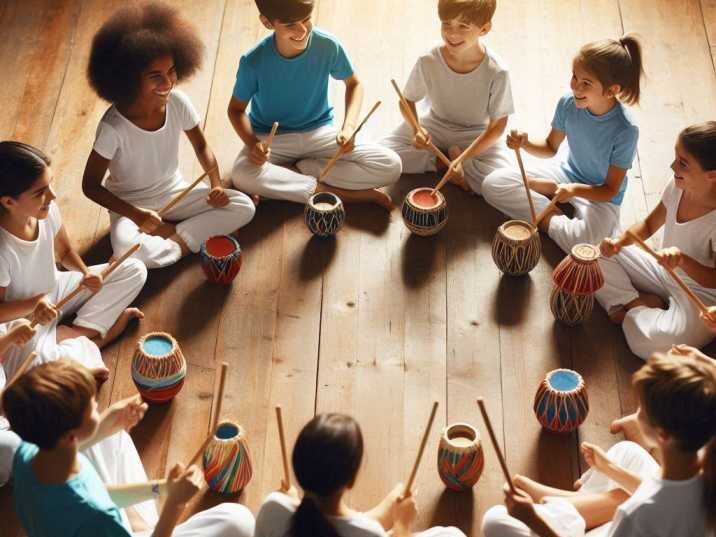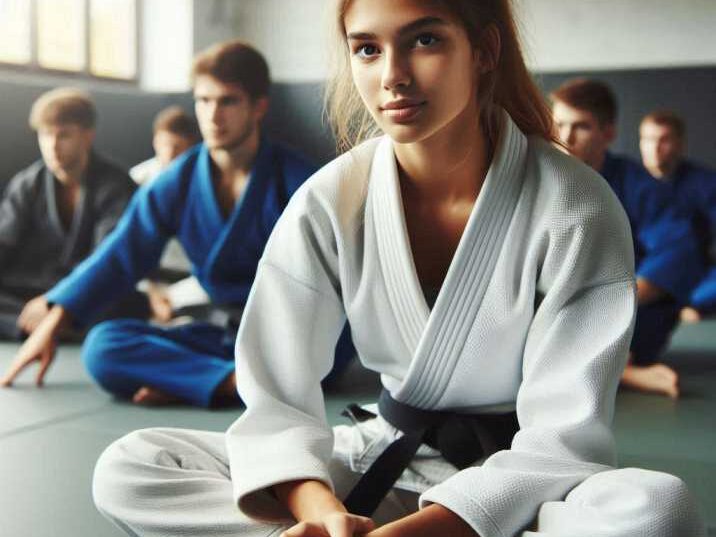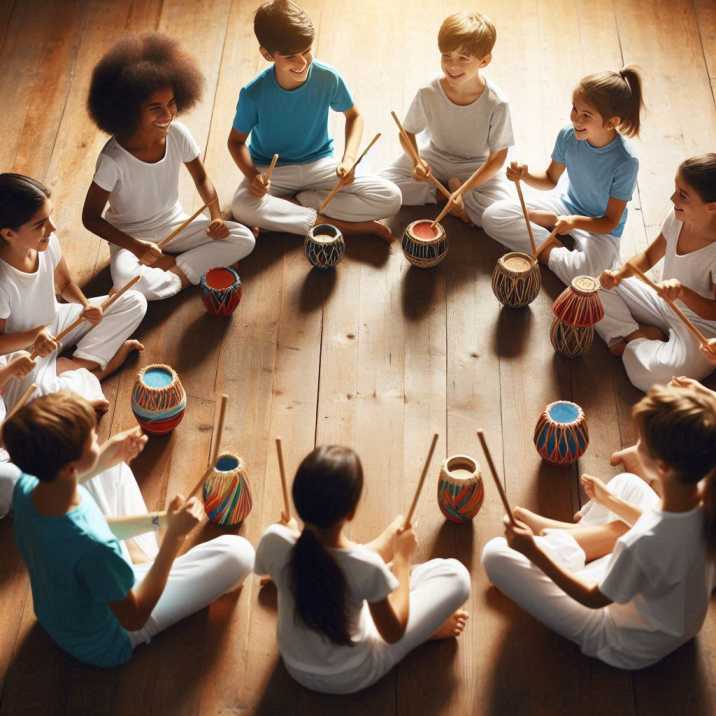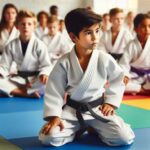Introduction: Why Learn Brazilian Fighting Styles?
Table of Contents
Brazilian fighting styles are not just about punches, kicks, and takedowns. They teach discipline, focus, confidence, and respect—values every child needs to succeed. Whether your child is in school, at home, or on the playground, martial arts training can help improve their concentration and behavior.
In this article, we explore the most popular fighting styles from Brazil, how training works, and why kids in the USA and around the world are joining these classes. Get ready to dive into a world of movement, culture, and self-control.
Top Brazilian Fighting Styles for Kids and Beginners
1. Capoeira – The Dance of Fighting
Capoeira is a unique Brazilian martial art that mixes dance, acrobatics, and music. It was created by African slaves in Brazil as a way to train without their masters knowing.

Key Benefits for Kids:
- Boosts coordination and rhythm
- Encourages creativity and movement
- Teaches teamwork through music and rhythm games
Capoeira classes often start with music. Kids learn to play instruments, sing songs, and move to the beat. This improves focus and listening skills in a fun way.
Brazilian Jiu-Jitsu (BJJ) – The Gentle Art
Brazilian Jiu-Jitsu is one of the most famous martial arts worldwide. It focuses on grappling, holds, and ground defense. BJJ is often called “the gentle art” because it teaches how to control opponents without hurting them.
Key Benefits for Kids:
- Improves problem-solving and patience
- Builds confidence in handling bullies
- Promotes physical and mental strength
Kids who train in BJJ develop discipline because they must practice techniques carefully and respectfully with partners.
Luta Livre – No-Gi Grappling
Luta Livre, which means “free fighting,” is similar to Brazilian Jiu-Jitsu but without the traditional gi (uniform). It focuses on wrestling and submissions, making it a fast-paced and exciting style for older kids.
Key Benefits for Kids:
- Enhances agility and quick thinking
- Promotes respect for opponents
- Sharpens reflexes and timing
Luta Livre training helps children stay mentally sharp and physically active.
Vale Tudo – Anything Goes (Not for Beginners)
Vale Tudo means “anything goes” in Portuguese. It’s a rough, old-style fight game that combines striking and grappling. Today, it is part of MMA (Mixed Martial Arts).
Note: Vale Tudo is better suited for older teens and adults due to its intensity.
Muay Thai in Brazil (Brazilian Style)
While Muay Thai started in Thailand, Brazilian fighters have added their own style to it. Many MMA gyms in Brazil teach a mix of Muay Thai and Brazilian street fighting techniques.
Key Benefits for Kids:
- Sharpens striking skills
- Builds muscle strength and cardio endurance
- Teaches balance and focus
How Brazilian Martial Arts Help in School and Life
1. Improved Focus and Attention
Martial arts require students to pay attention to instructions, body movements, and techniques. This directly improves classroom behavior.
2. Better Discipline and Respect
Instructors teach kids to bow, follow rules, and show respect to teachers and peers, which builds a strong foundation for good behavior.
3. Stress and Anger Control
By channeling energy into practice, kids learn to manage emotions and stay calm in difficult situations.
Table: Brazilian Fighting Styles Comparison for Kids
| Style | Best For | Key Skills | Difficulty Level |
|---|---|---|---|
| Capoeira | Ages 5+ | Rhythm, teamwork, flexibility | Beginner |
| Brazilian Jiu-Jitsu | Ages 6+ | Strategy, focus, self-defense | Moderate |
| Luta Livre | Ages 8+ | Grappling, quick reflexes | Moderate |
| Muay Thai (Brazil) | Ages 10+ | Striking, cardio, balance | Intermediate |
| Vale Tudo | Teens/Adults | Full MMA skills | Advanced |
Benefits for Young Learners
Parents are enrolling children in Brazilian martial arts to:
Improve Academic Performance
Brazilian martial arts help kids learn to focus and follow instructions. These skills carry over to the classroom, making it easier to listen to teachers and finish homework. Better focus means better grades!
Brazilian martial arts offer an exciting alternative to team sports, especially for kids who need individual attention or have learning challenges.
Reduce Screen Time and Promote Exercise
Instead of sitting in front of screens all day, kids stay active by kicking, rolling, and moving during martial arts class. It’s a fun way to get exercise, burn energy, and stay healthy.
Build Self-Confidence
Learning new moves and earning belts makes kids feel proud of themselves. When children see what they can do, they become braver and more confident in school, sports, and life.
Help Children Stand Up to Bullies
Brazilian martial arts teach kids how to stay calm and protect themselves without being aggressive. They learn peaceful ways to handle bullies and feel safer at school and on the playground.
Foster Mental Health and Discipline
Martial arts training teaches kids to be patient, stay calm, and control their emotions. This helps reduce stress, improves behavior, and builds a strong, focused mind.
Training, Nutrition, and Lifestyle
To succeed in martial arts, kids need:
- Healthy meals with protein and vegetables
- Plenty of sleep and hydration
- Regular practice and rest days
Parents play a key role in setting routines and supporting their child’s training goals.

Conclusion: A Path to Focus, Fun, and Fitness
Brazilian fighting styles like Capoeira and Brazilian Jiu-Jitsu offer kids much more than self-defense. They teach discipline, boost focus, and build confidence that can help in every area of life—including school.
Whether you’re a parent looking for a fun sport or a kid who wants to try something new, Brazilian martial arts are a powerful, playful, and positive choice.
FAQs About Brazilian Fighting Styles for Kid
1. What is the best Brazilian martial art for children?
Brazilian Jiu-Jitsu is best for kids because it teaches discipline, focus, and safe self-defense.
2. Can Capoeira help my child focus better in school?
Yes! Capoeira improves listening, memory, and coordination through music and movement.
3. Is Brazilian Jiu-Jitsu safe for beginners?
Yes, classes are supervised and focus on safety, technique, and mutual respect.
4. At what age can kids start martial arts training?
Most kids can begin around 5 to 6 years old, depending on the style and the school.
5. Does martial arts training help with bullying?
Absolutely! Kids learn confidence and non-violent ways to defend themselves.



